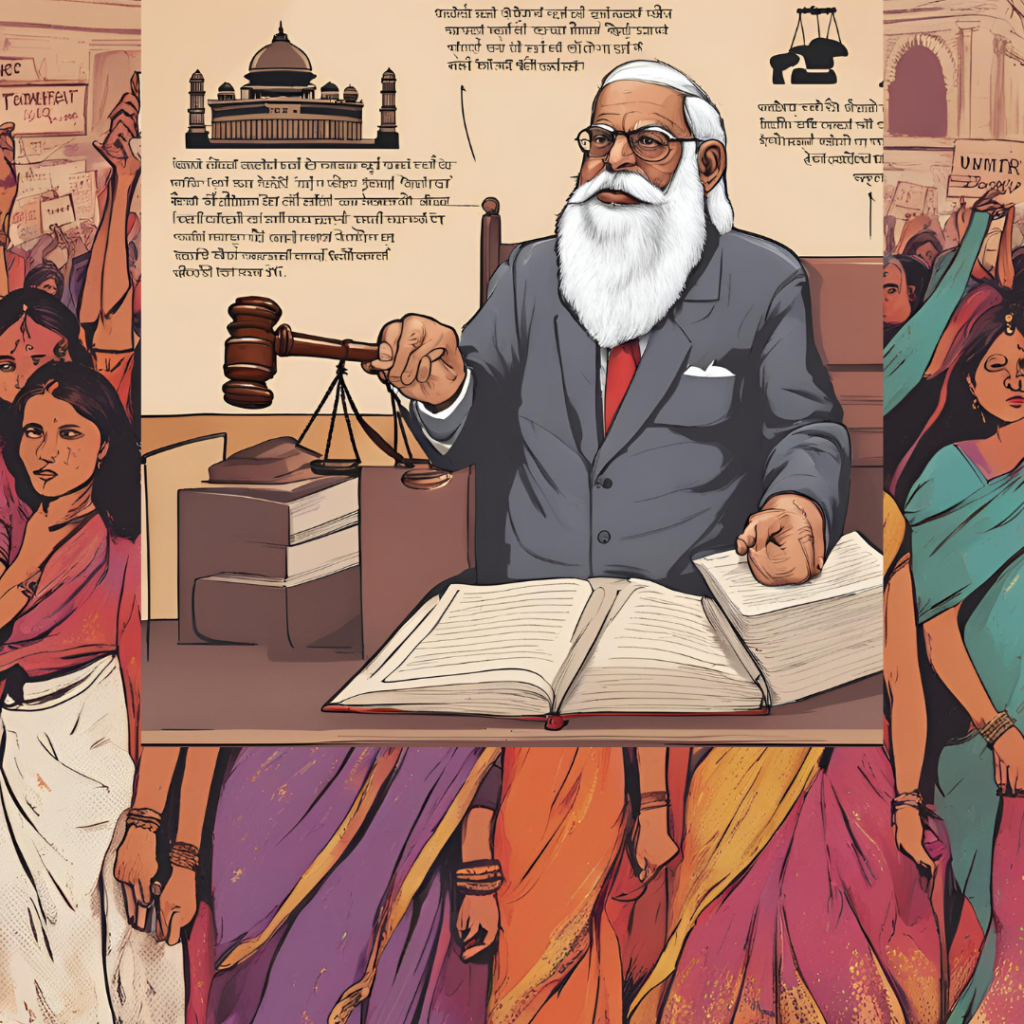Same Sex Marriage in India: A Delicate Balance Between Tradition, Law, and Humanity
India, a land of diverse cultures, traditions, and beliefs, has always been a melting pot of ideas and ideologies. From ancient scriptures to modern-day debates, the country has witnessed a continuous evolution of societal norms. One such contemporary issue that has sparked widespread discussion is the concept of same sex marriage. The topic is complex, layered, and deeply intertwined with India’s legal framework, cultural heritage, and societal values. As the nation grapples with this issue, it is essential to approach it with sensitivity, respect, and a balanced perspective that honors the Indian Constitution, judiciary, and the sentiments of its people.

The Historical and Cultural Context
India’s history is rich with references to diverse gender identities and sexual orientations. Ancient texts, such as the Kamasutra and the Mahabharata, contain narratives that hint at the existence of same-sex relationships and gender fluidity. Temples like Khajuraho and Konark depict sculptures that celebrate love and intimacy in various forms. However, over time, colonial-era laws and conservative societal norms overshadowed these inclusive traditions.
The British introduced Section 377 of the Indian Penal Code in 1861, criminalizing “carnal intercourse against the order of nature.” This law, which remained in force for over 150 years, cast a long shadow over the LGBTQ+ community, forcing them into the margins of society. It wasn’t until 2018 that the Supreme Court of India, in a landmark judgment, decriminalized consensual homosexual acts, marking a significant step toward equality and dignity for the LGBTQ+ community.
The Legal Landscape: A Work in Progress
The decriminalization of homosexuality was a watershed moment, but it was only the beginning of a long journey toward full equality. The question of same sex marriage is the next frontier in this struggle. Unlike many Western countries where same-sex marriage is legally recognized, India’s legal framework does not currently provide for such unions. Marriage in India is governed by personal laws based on religion, as well as the Special Marriage Act, 1954, which allows for interfaith and inter-caste marriages but does not explicitly include same-sex couples.
The Indian Constitution, however, is a beacon of hope. It guarantees fundamental rights to all citizens, including the right to equality (Article 14), the right to non-discrimination (Article 15), and the right to life and personal liberty (Article 21), which has been interpreted to include the right to privacy and dignity. These constitutional provisions form the bedrock of the argument for recognizing same-sex marriage.
In recent years, several petitions have been filed in Indian courts seeking legal recognition of same-sex marriage. The judiciary, known for its progressive stance on social issues, has been approached to interpret existing laws in a manner that aligns with the principles of equality and justice. However, the courts have also emphasized the need for legislative action, highlighting that such a significant change in societal norms should ideally come from the elected representatives of the people.
The Societal Perspective: Tradition vs. Change
Indian society is deeply rooted in tradition, with marriage often viewed as a sacred institution that binds families and communities together. For many, the idea of same-sex marriage challenges long-held beliefs and cultural norms. This resistance is not unique to India; it is a global phenomenon observed in many societies undergoing similar transitions.
At the same time, India is a young nation, with a significant portion of its population under the age of 35. This demographic is increasingly exposed to global ideas and is more open to questioning traditional norms. Social media, cinema, and literature have played a pivotal role in fostering conversations about LGBTQ+ rights, making the community more visible and their struggles more relatable.
However, change is rarely swift or unanimous. While urban centers may be more accepting, rural areas often remain conservative, with limited exposure to progressive ideas. Bridging this gap requires a nuanced approach that respects diverse viewpoints while advocating for inclusivity.
The Role of Religion and Personal Beliefs
Religion plays a central role in the lives of many Indians, and personal beliefs often shape opinions on contentious issues like same-sex marriage. Different religious communities have varying stances on the matter. For instance, some progressive religious leaders have expressed support for LGBTQ+ rights, while others remain firmly opposed, citing religious texts and doctrines.
It is important to recognize that religion and personal beliefs are deeply personal and should be respected. At the same time, the Indian Constitution enshrines the principle of secularism, ensuring that the state does not favor any particular religion. This principle is crucial in navigating the debate around same-sex marriage, as it underscores the need for a legal framework that upholds equality without infringing on religious freedoms.
The Way Forward: A Balanced Approach
The question of same-sex marriage in India is not just a legal or social issue; it is a human issue. At its core, it is about recognizing the right of every individual to love and be loved, to form families, and to live with dignity. However, any step toward legalizing same-sex marriage must be taken with careful consideration of India’s unique cultural, social, and legal context.
- Legislative Action: While the judiciary has played a crucial role in advancing LGBTQ+ rights, the onus ultimately lies on the legislature to enact laws that reflect the evolving values of society. A comprehensive review of existing marriage laws, including the Special Marriage Act, is necessary to ensure they are inclusive and equitable.
- Public Awareness and Education: Changing societal attitudes requires sustained efforts to educate and sensitize the public. Schools, colleges, and community organizations can play a vital role in fostering understanding and acceptance of diverse sexual orientations and gender identities.
- Dialogue and Consensus-Building: Engaging with religious leaders, community elders, and other stakeholders is essential to build consensus and address concerns. A respectful and open dialogue can help bridge the gap between tradition and modernity.
- Protecting Rights Without Imposing Values: While advocating for same-sex marriage, it is crucial to ensure that the rights of those who hold traditional views are also respected. The goal should be to create a society where diverse beliefs coexist harmoniously.
- Learning from Global Experiences: India can draw lessons from other countries that have legalized same-sex marriage. Understanding the challenges they faced and the strategies they employed can provide valuable insights for India’s journey.
Conclusion: A Journey Toward Inclusivity
The debate over same-sex marriage in India is a reflection of the country’s ongoing struggle to balance tradition with progress, individual rights with collective values, and legal principles with societal norms. It is a journey that requires patience, empathy, and a commitment to the ideals of justice and equality enshrined in the Indian Constitution.
As India navigates this complex issue, it is essential to remember that at the heart of the matter are real people—individuals who seek nothing more than the right to live authentically and love freely. By approaching the topic with an open mind and a compassionate heart, India can pave the way for a more inclusive and equitable society, where every citizen, regardless of their sexual orientation, can thrive.
In the words of Mahatma Gandhi, “The true measure of any society can be found in how it treats its most vulnerable members.” As India continues to evolve, let us strive to create a society that embraces diversity, upholds dignity, and celebrates love in all its forms.
Read More Such Interesting Article : Top 10 Epic Books
Visit Our Youtube Channel








